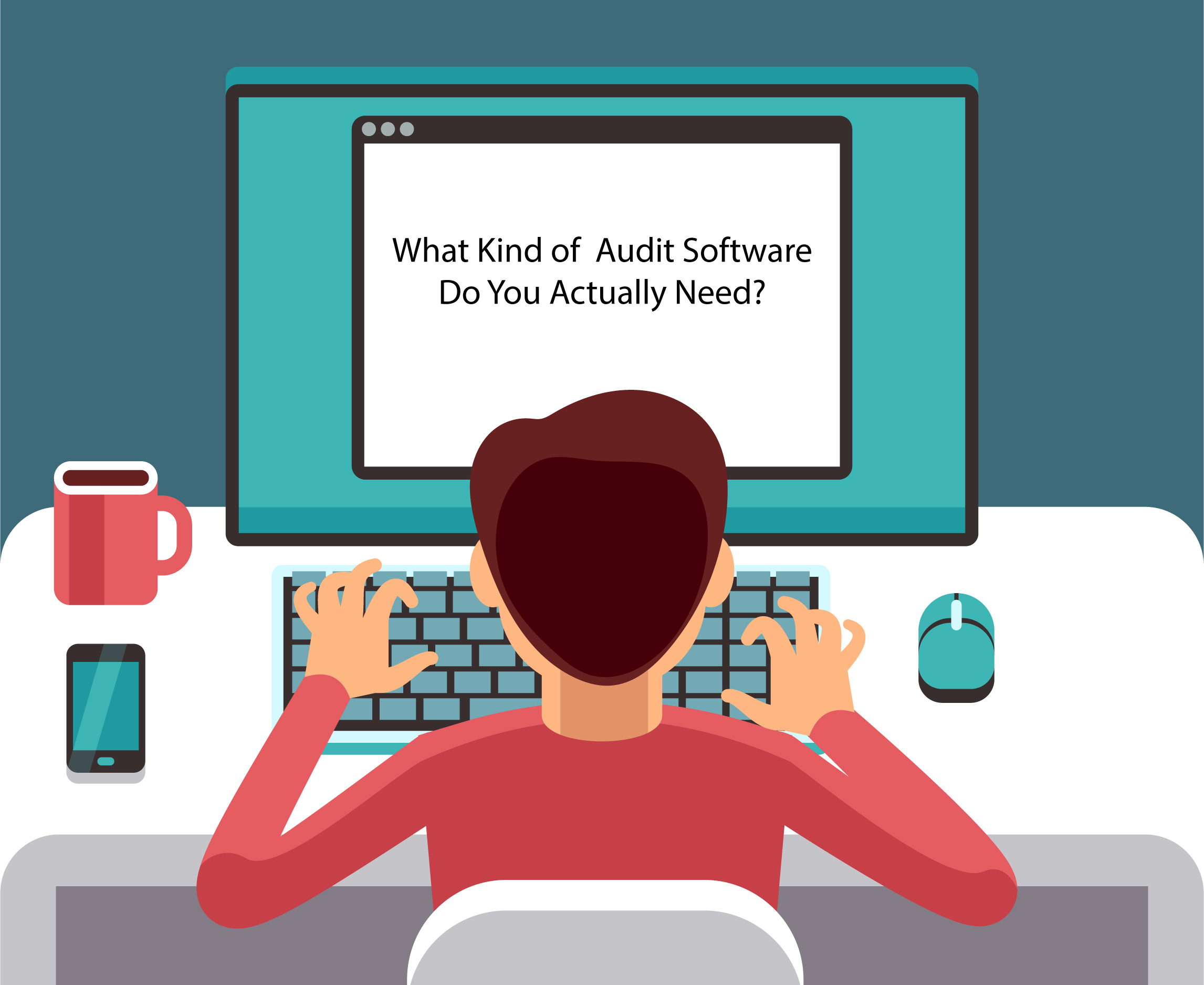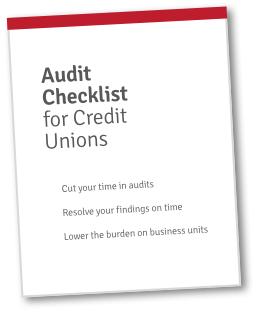There are three basic types of audit software for credit unions: Basic, Enhanced, and Engaged. Read on to learn more about each kind—and which would be best for your credit union.
Basic tools are repurposed office productivity tools like Microsoft Excel and Outlook. They work, but they’re clunky, slow, and increase the risk of human error.
Enhanced audit tools include countless capabilities, features, and plugins to address any need your audit team has. They can do it all, but they’re complex and not industry-specific. For credit unions that have complex needs and are willing to invest the time and resources to maintain the software, Enhanced tools are a good choice.
Engaged audit tools are tailor-made to streamline, simplify, and automate tedious portions of the audit process for credit unions specifically. They help to save time on audits and make sure your I’s are dotted and your T’s are crossed—while still being easy to use. They’re like the iPhone of audit software.
So, which of these types of audit software does your credit union need?
Scroll down to watch a webinar about the differences!
Don’t Buy Something You Don’t Need
Some people are gearheads. They want the best, most high-tech stuff on the market even though they’ll never use it.
But more capabilities don’t make for better performance. If you buy features you don’t need, you’re paying for complexity and a difficult user experience. You could actually hurt your performance instead of enhancing it.
You need only the credit union audit software that solves the issues you have—not the issues that you think you might have, someday, if your circumstances change considerably. Otherwise, you risk overpaying for something that won’t move the needle at all.
The Type of Credit Union Audit Software You Need
To help you find which type of audit software is best for you (Basic, Enhanced, Engaged), we’ve developed some questions to help you find the most appropriate solution.
1. Do you want to save time on audits?
Most credit unions use Basic audit tools. However, credit unions that have upgraded to more robust tools have saved time on audits.
What would you do with your 25% time savings on audits? Would you reinvest that time into the audit? Would you put it towards keeping up with daily operations? Would you focus on higher strategic priorities?
If you want to save time on audits, then Basic tools won’t cut it—you’ll need Enhanced or Engaged audit software for that. If you don’t think time savings would help you, your team, or your organization, then other solutions would just be a luxury.
2. How complex is your audit program?
Does your credit union have niche audit software needs? Do you have a large team of internal auditors? Would you compare the needs of your audit department to that of a Fortune 500 corporation?
If your audit program has a broad and intense range of audit requirements, then you might want to consider Enhanced audit tools. If you’re willing to spend the time and money to operate and maintain these tools, they offer a wide array of capabilities.
If your audit program is more similar to that of your peers in the industry, then Engaged tools might be a better fit.
3. What is your team’s comfort level with complex software?
You, your team, and all business units involved in the audit will need to realistically assess your comfort level with new software. Are you willing to learn how to use a complex new software? More importantly, are your business units willing to learn how to use complex audit software? Can you dedicate personnel to keeping it operational? Can you achieve that kind of buy-in from members of your executive team?
If you don’t want a solution that requires a significant time investment to run and operate, then Enhanced tools may not be your best bet. Engaged tools provide more than enough capabilities for more credit unions without adding complexity, and as a result they are intuitive and easy to use.
Final Thoughts
You should buy only the audit software that addresses your needs.
Use Basic tools if
- Your team (the audit team and business unit personnel) is very small
- You perform only a few audits per year, tops
- You don’t need to save time on audits
Use Enhanced tools if
- You have varied and complex audit needs
- Your audit team is large
- Your team is ready and willing to dedicate the time to learn and maintain complex software
Use Engaged tools if
- You’d like to save time on audits
- You want something that’s easy to use and operate, both for your audit team and your business units
- You want to increase efficiency and accountability while reducing risk
Just remember: although some audit software has many capabilities, there’s a good chance that your credit union would never use them. You should consider only the software that addresses your credit union’s audit needs. Otherwise, you may end up spending far more time, money, and energy on audits than you did before!
If you’d like to read more about credit union audit software and how to save time on audits, subscribe to our blog!
Or you can see how other credit unions have moved beyond Basic tools in the case studies below:
- $100m Point West Credit Union
- $500m Spectra Credit Union
- $1b Del Norte Credit Union
- $2.5b Credit Union of Southern California
- $10b Digital Federal Credit Union (DCU)


 Get FREE Access to the Audit Checklist for Credit Unions!
Get FREE Access to the Audit Checklist for Credit Unions!


